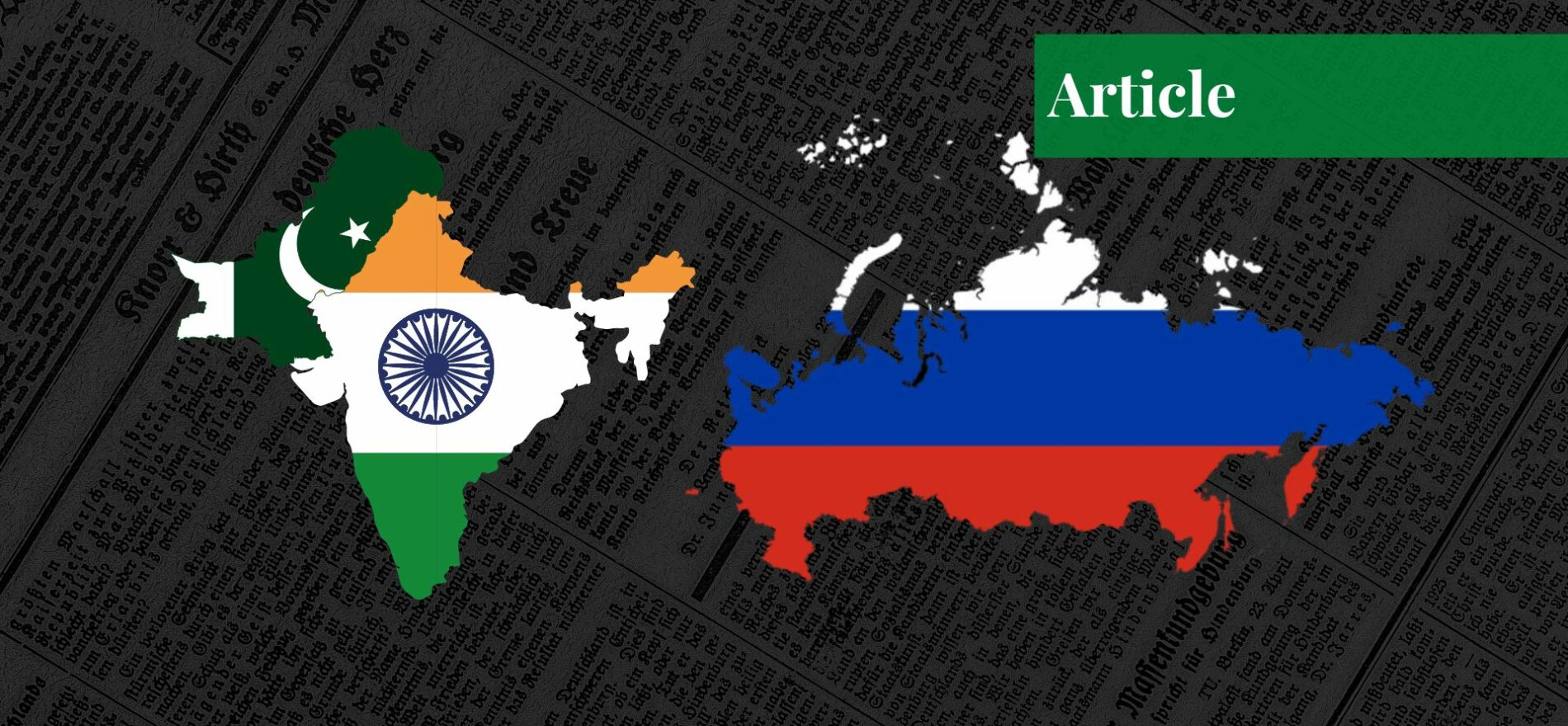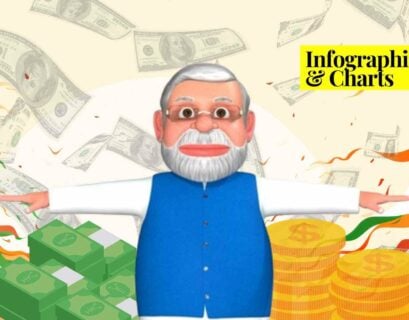Trade ties between countries are essential for determining their geopolitical dynamics and economic growth. One such intriguing nexus exists between Pakistan and Russia, and its impact on India-Russia relations has garnered significant attention. Russia and India have maintained a long-standing partnership that is marked by cooperation in many diverse areas, including technology, energy, and defense. This alliance, built on trust and common goals, has been crucial in promoting trade between the two countries. On the other hand, despite historical ideological disparities and intricate geopolitical relationships, Pakistan and Russia have witnessed a gradual thaw in their relations in recent years, resulting in increased trade and cooperation.
Historical Context
Although Pakistan and Russia have a complicated history together, neither nation has ever placed the other at the top of its foreign policy agenda. But in the late 1960s and early 1970s, Pakistan began reviewing its foreign policy and worked to strengthen ties with the Soviet Union. Pakistan provided a base for American intelligence gathering against the Soviet Union until 1970 and joined both the Central Treaty Organization (CENTO) and the Southeast Asia Treaty Organization (SEATO) during the Cold War. Automatically, Russia harbored mistrust and hostility towards Islamabad. However, Zulfiqar Ali Bhutto’s Moscow visit in 1974 marked the first official engagement between the two nations.
The 1979 Soviet invasion of Afghanistan fundamentally altered the dynamics of the region. Pakistan sponsored anti-Soviet Afghan Mujahideen alongside the US. As a result, relations between Pakistan and the US improved while they soured with the Soviet Union. Following the fall of the USSR and the end of the Cold War, relations between Moscow and Islamabad entered a period of mutual caution as both nations turned their attention to other facets of their respective international portfolios.
Mikhail Fradkov’s visit to Pakistan in 2007 was of significant importance as it marked the first-ever visit by a Russian prime minister to Pakistan since the end of the Soviet Union 38 years ago. After this, Russia started establishing deeper ties through trade with Pakistan, perhaps as part of the Kremlin’s larger outreach to Eurasia and its worries about terrorism stemming from the situation in Afghanistan.
Political and Geopolitical Considerations
Broader political ramifications of the developing trade relationship between Pakistan and Russia may indirectly affect the dynamics between India and Russia. Pakistan may try to improve its strategic standing concerning India while it develops its ties with Russia. More military cooperation, intelligence sharing, or joint drills could follow from this, raising concerns among India’s security establishment.
Also, the fact that Moscow wants to “grow this connection further” with Pakistan is less likely to reassure India than it is to raise suspicions due to Pakistan’s independence from India. Russia has to maintain cordial relations with Pakistan, since New Delhi has concerns over Pakistan, if it wishes to stop Indian tendencies that it considers undesirable.
Economic Dimensions
The end of a four-decade trade dispute brought on by the collapse of the Soviet Union in November 2019 may have been the most obvious indication yet of a shared commitment to strengthening economic ties. Following the beginning of negotiations in 2016, Pakistan eventually paid Russia US$93.5 million (S$125 million), paving the way for new economic engagement. Shortly after this, a 64-member delegation led by the Minister for Commerce and Industry visited Pakistan in December 2019 to attend the 7th Inter-Governmental Commission. Russia proposed a comprehensive investment package of $ 14 billion for Pakistan’s energy sector. In 2020, the bilateral trade volume increased significantly by more than 45% from 2019 to a record high of US$790 million (S$1 billion).
2020’s Russia-Pakistan Technical Committee conference came to an end, and both nations revisited the discussion of the North-South Gas Pipeline Project. The deal was initially signed in 2015, but because of Western sanctions, it was delayed. The undertaking is now known as the Pak Stream Gas Pipeline Project (PSGP). Liquefied natural gas (LNG) would be transported to Lahore by a 1,100-kilometer pipeline from refineries in Karachi and Gwadar.
The agreement, which was signed in July 2021, stated that Moscow handed Islamabad a 74% ownership part in the project and promised to provide Pakistan with finance and technical assistance. The PSGP is one of the greatest Russian investments in Pakistan following the Soviet Union’s assistance in developing the Oil and Gas Development Company and Pakistan Steel Mills in the 1960s and 1970s. In light of its goals to triple its LNG production capacity and expand LNG exports by 2035, Russia is ready to welcome Pakistan as a new energy customer. In addition to the PSGP, Russian businesses have submitted bids to supply Pakistan with extra LNG.
When Lavrov visited Islamabad in April 2021, he made a point of mentioning that Rosatom and the Pakistan Atomic Energy Commission are considering working together to use nuclear energy for industrial and medical uses. Given that he last visited Pakistan nine years ago, this visit signifies an improvement in relations between Moscow and Islamabad. Shafqat Ali Khan, the ambassador of Pakistan to Russia, said in a webcast before Lavrov’s visit that both nations “are marked by deepening trust and expanding win-win cooperation.”
Impact on India
The lifting of the Russian arms embargo on Pakistan in 2014 has also opened up opportunities for defense trade between the two countries. But defense sales have served as the foundation of Indo-Russian relations since the beginning and will continue to be a top priority for New Delhi shortly. For decades, India has made significant investments in Soviet and Russian technology. India desired to diversify its sources of munitions from a political standpoint, and the Soviet Union was viewed as “reliable” in comparison to other potential suppliers.
Recently, Dr. S. Jaishankar, the minister of external affairs, stated that the bilateral trade target of USD 30 billion had been exceeded far before the target year of 2025 and that the trade volume for the period of April 2022 to February 2023 was approximately USD 45 billion.
Conclusion
While the growing trade links between Pakistan and Russia may bring some difficulties and concerns for relations between India and Russia, the overall effect is unlikely to be detrimental. The long-standing relationship between India and Russia, which is based on strategic trust and economic interdependence, provides a strong base on which exterior geopolitical developments can be withstood. India’s proactive involvement and diplomatic wrangling can further lessen any potential negative impacts, enabling the continuation of a profitable and resilient trading partnership between India and Russia.
If you want to submit your articles, research papers, and book reviews, please check the Submissions page.
The views and opinions expressed in this article/paper are the author’s own and do not necessarily reflect the editorial position of Paradigm Shift.


















